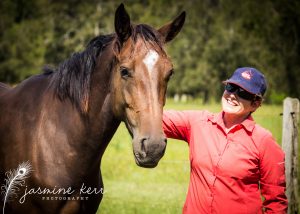“Oils In Horse Nutrition – Ten Tips For Getting The Balance Right”

“Oils In Horse Nutrition – Ten Tips For Getting The Balance Right”
About Larissa
– If you would like to know more about Larissa then listen to her previous chats
First Chat (120) Larissa Bilston
Second Chat (382) – Larissa Bilston 2 – “Ten Points to Help you Feed your Horse Better for Less”
Third Chat (413) – Larissa Bilston 3 – “Ten Things Horse Owners Should Know About Calcium, Oxalates And Their Pastures”
About This Episode
“Oils In Horse Nutrition – Ten Tips For Getting The Balance Right”
To Listen to Larissa Bilston 4 on YouTube – Click Here
To Listen to Larissa Bilston 4 on iTunes – Click Here
Or Listen below
“Oils In Horse Nutrition – Ten Tips For Getting The Balance Right”
1. Oil is very calorie dense.
2. Oils are essential to the diets of all mammals, but they do much more than just store fat for energy.
3. Green grass is a natural source of fat in the equine diet, usually containing between one and four per cent oil.
4. Oils ain’t oils.
– The type of fatty acids that form a natural part of the horse diet and the most common fat supplements are PUFAs, mainly omega-3 or omega-6 fatty acids.
5. It is important that the equine diet contains both omega-3 and omega-6 fatty acids for a healthy immune system.
6. Nutritionists advise that equine diets should contain more omega-3 fatty acids than omega-6 but modern diets make this balance difficult.
7. Horses are not efficient at converting plant based ALA to EPA and DHA omega-3 forms.
8. One of the most important functions of PUFAs in the body is to control hormones.
– The omega-6 fatty acids produce hormones that increase inflammation as a natural part of normal immune function and the hormones that omega-3s influence have an anti-inflammatory effect.
9. Seafood and algal sourced omega
-3s, predominantly EPA and DHA, are considered more potent omega-3 supplements than terrestrial plant sources of omega-3s and research is highlighting numerous benefits in athletic and reproductive performance from feeding supplemental marine-sourced DHA/EPA. Benefits include: Lower heart rate during exercise compared to non-supplemented horses exercising at the same speed.
10. If we feed our horse oils as a calorie source, or include one of the many commercial feeds containing omega-6 dominant vegetable oils, the omega-6 to omega-3 imbalance is further exacerbated.
Time Stamps
01:25 – Background
02:16 – 1. Oil is very calorie dense.
03:35 – 2. Oils are essential to the diets of all mammals, but they do much more than just store fat for energy.
06:38 – 3. Green grass is a natural source of fat in the equine diet, usually containing between one and four per cent oil.
07:33 – 4. Oils ain’t oils.
09:20 – 5. It is important that the equine diet contains both omega-3 and omega-6 fatty acids for a healthy immune system.
11:17 – 6. Nutritionists advise that equine diets should contain more omega-3 fatty acids than omega-6 but modern diets make this balance difficult.
11:40 – 7. Horses are not efficient at converting plant based ALA to EPA and DHA omega-3 forms.
12:44 – 8. One of the most important functions of PUFAs in the body is to control hormones.
14:07 – 9. Seafood and algal sourced omega
16:29 – 10. If we feed our horse oils as a calorie source, or include one of the many commercial feeds containing omega-6 dominant vegetable oils, the omega-6 to omega-3 imbalance is further exacerbated.
20:40 – Summary
Contact: see details below
Larissa’s Contact Details
Phone: 0409 477 404 or +61 409 477 404
Email: larissa@equinevitmin.com or diets@farmalogic.com.au
Website: www.equinevitmin.com
Facebook: www.facebook.com/EquineVitMin
Book
Music
BenSound.com
When Larissa is a return guest on Horse Chats, what question would you like to ask her?
(Please leave comment below)